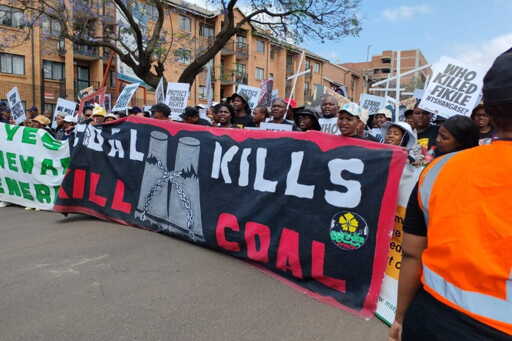In the coal towns of northern KwaZulu-Natal, the promise of South Africa’s “just transition” feels like a distant dream. While government plans speak of a fair shift to clean energy and justice for those harmed by coal, in places like Dannhauser and Mtubatuba, families are still choking on coal dust, activists say they’re being threatened for speaking out, and new mining applications keep arriving. Communities say the country’s transition is happening everywhere except where coal is dug from the earth. In a country where 74% of the electricity is made from burning coal, the transition to renewable energy has created a fraught environment where workers who rely on coal jobs are pitted against community members whose health and livelihoods have been damaged by coal dust, blasting and water contamination from mines and power stations. People living near the Tendele mine in KwaZulu-Natal say dust from the mine coats everything in their homes. Image by Victoria Schneider for Mongabay. In 2022, the South African government defined a just transition as one that would simultaneously address health impacts and local environmental harm caused by coal mining and generation, and the job losses and economic disruption that shutting down a vital industry would cause, with particular attention to how poor communities, women, youth and people with disabilities might be affected. The framework explained how communities affected by mining were to benefit from compensation for health and land damage, and how both workers and residents would be involved in planning and decision-making. In 2024,…This article was originally published on Mongabay
From Conservation news via this RSS feed


